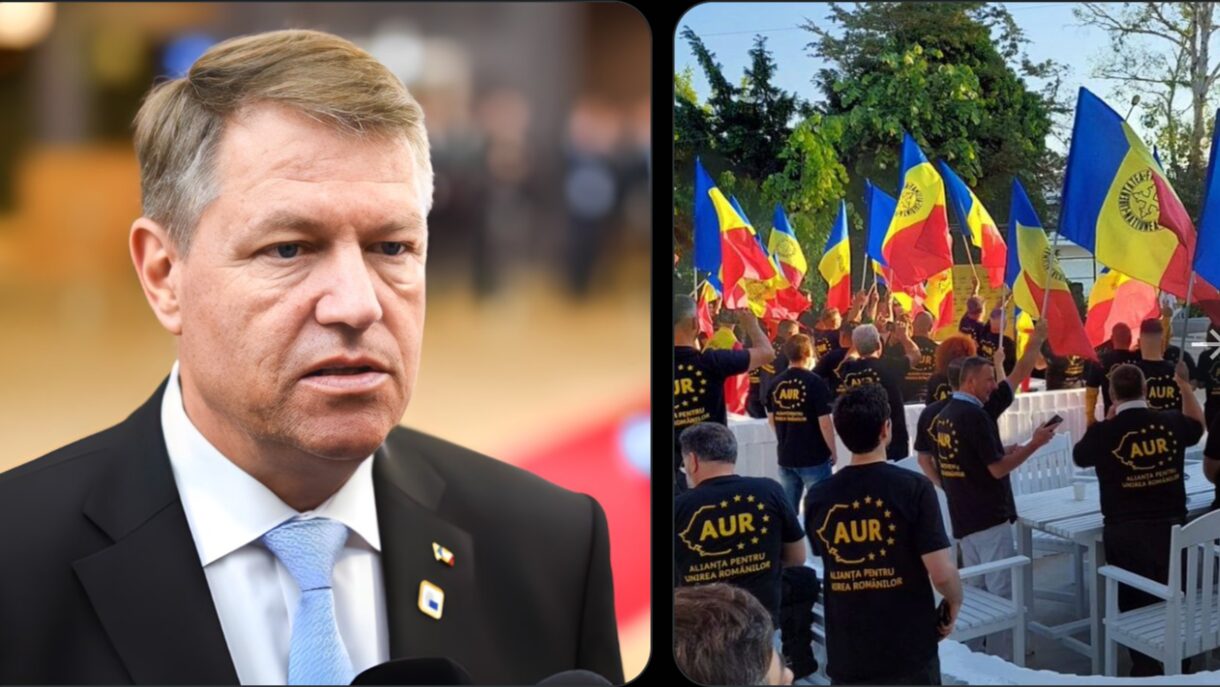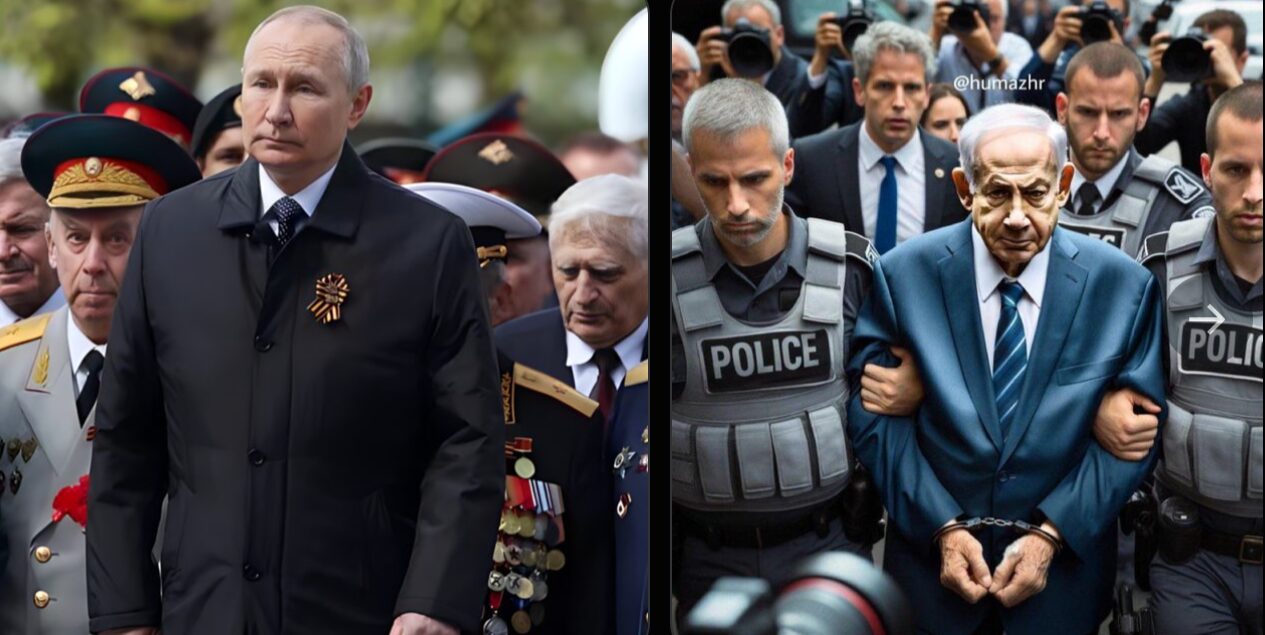ROMANIA COUP UPDATE: Romanian opposition party AUR calls president Klaus Iohannis “ILLEGITIMATE” and a “TRAITOR to the country.”
Romania Coup Update: Romanian Opposition Party AUR Calls President Klaus Iohannis ‘Illegitimate’ and a ‘Traitor to the Country’
In the latest development of Romania’s political crisis, the opposition party Alliance for the Union of Romanians (AUR) has escalated its rhetoric against President Klaus Iohannis, calling him both “illegitimate” and a “traitor to the country.” This statement comes after Iohannis’ refusal to vacate the presidency following the expiration of his term and the failure to peacefully transfer power to his successor. AUR’s sharp condemnation marks a significant escalation in Romania’s ongoing political standoff, further deepening the divide between the ruling establishment and the opposition.
The political turbulence in Romania has reached a boiling point, with widespread protests and a deepening sense of unease over the future of the country’s democratic processes. Iohannis’ refusal to step down, despite his two-term presidency coming to a close, has sparked outrage across the political spectrum. In this climate of uncertainty, AUR’s vocal criticism has added to the mounting pressure on the president and raised further concerns about the state of Romania’s political institutions.
AUR’s Accusations: “Illegitimate” and a “Traitor”
AUR, a right-wing populist party known for its anti-establishment stance, has been one of the most vocal critics of President Iohannis. In a series of statements, AUR leaders have called Iohannis “illegitimate,” arguing that his refusal to leave office after the expiration of his term represents an unlawful seizure of power. The opposition party has also accused Iohannis of betraying Romania’s constitution and undermining the democratic process.
The term “illegitimate” refers to AUR’s belief that Iohannis is no longer the duly elected leader of Romania. Under Romanian law, a president can serve only two consecutive terms, and Iohannis’ second term officially ended on December 22, 2024. According to the country’s constitution, a new president was expected to assume office immediately after the expiration of Iohannis’ term. AUR insists that by refusing to relinquish power, Iohannis has effectively overstepped the constitutional boundaries of his office.
The more inflammatory accusation of “treason” stems from AUR’s view that Iohannis is working against Romania’s interests by refusing to step down. The party’s leadership has argued that Iohannis’ actions are part of a broader conspiracy to maintain control over the country and prevent the newly elected president from assuming power. They claim that his refusal to honor the will of the people undermines Romania’s sovereignty and aligns him with foreign powers that have interests in prolonging the current political order.
In a recent speech, AUR leader George Simion stated, “Klaus Iohannis has shown that he is no longer a servant of the Romanian people, but a puppet of foreign interests. His actions are an affront to the Romanian people and our constitution. He is not only illegitimate but a traitor to the nation.”
Political Implications of AUR’s Statements
AUR’s bold rhetoric has ignited a firestorm of debate in Romania, and the consequences of these statements are far-reaching. First and foremost, AUR’s position has intensified the political polarization in the country, which is already at a fever pitch due to Iohannis’ controversial actions. By labeling the president a “traitor,” AUR is not only challenging Iohannis’ legitimacy but also positioning itself as the leading voice of opposition in a time of national crisis.
The party’s accusations are likely to galvanize its supporters, many of whom are disillusioned with the political establishment and eager for a change in leadership. AUR, which has gained traction in recent years by capitalizing on populist sentiments and dissatisfaction with the traditional political elite, sees this moment as an opportunity to rally public support and further solidify its position as a force to be reckoned with in Romanian politics.
On the other hand, AUR’s sharp attacks are also putting pressure on the opposition coalition, which has been divided on how best to handle the current crisis. While many opposition parties agree that Iohannis’ refusal to step down is unconstitutional, there are disagreements on how to proceed with calls for his removal. Some, like AUR, are advocating for immediate action and public protests, while others prefer a more cautious approach through legal means and parliamentary procedures. These divisions are complicating efforts to present a united front against the president’s actions.
Public Reaction and Protests
The ongoing political standoff has sparked mass protests across Romania, with demonstrators taking to the streets to voice their dissatisfaction with Iohannis’ refusal to leave office. These protests have become a battleground for competing political factions, with both supporters and opponents of the president clashing in public spaces. While the majority of protests have been organized by anti-Iohannis groups, many of whom back AUR, there are also supporters of the president who are rallying to defend his right to stay in office.
Romania’s youth, in particular, has been a driving force behind the protests. Many younger Romanians, frustrated with the political establishment and corruption within the country, view Iohannis as part of a broader system that has failed to deliver meaningful change. For them, his refusal to step down is the latest example of the political class acting in its own interests rather than serving the people.
However, not all Romanians share this view. Supporters of Iohannis argue that he has been a stabilizing force in the country and that his refusal to step down is justified by concerns about national security and political instability. Many of his supporters point to the ongoing conflict in Ukraine and the complex geopolitical situation as reasons for Iohannis’ decision to remain in office.
The protests have been marked by clashes with riot police, and the atmosphere in Romania is tense. As AUR continues to press its case against the president, the risk of further civil unrest looms large. If Iohannis does not step down soon, the political crisis in Romania could deepen, leading to even more significant divisions within the country.
International Reactions to the Crisis
The international community has been closely monitoring the situation in Romania, given the potential implications for the country’s democratic stability and its relationship with the European Union. Romania, which joined the EU in 2007, is considered an important member state, and any crisis within the country could have repercussions for its standing in the union.
The European Union has expressed concern over the political impasse in Romania, with some officials calling for a peaceful resolution and respect for the rule of law. However, the EU has been hesitant to take direct action, as it is traditionally cautious when it comes to interfering in the internal affairs of member states. Nonetheless, if the situation escalates further, Romania could face significant scrutiny from Brussels.
Russia, meanwhile, has weighed in on the crisis, with state-run media outlets casting doubt on the legitimacy of the Romanian political system and pointing to the instability as a potential opportunity to exert influence in the region. The Kremlin has long been critical of Romania’s NATO membership and its alignment with the West, and the current crisis offers a chance to further exploit divisions within the EU and NATO.
The Path Forward: Can Romania Avoid a Full-Blown Crisis?
Romania’s political crisis is at a crossroads. As AUR and other opposition groups ramp up their calls for action, the question remains: how will President Iohannis respond? Will he step down in the face of mounting pressure, or will he continue to hold on to power, further exacerbating tensions in the country?
The next few weeks will be critical for Romania’s future. A peaceful resolution to the crisis is still possible, but it will require a commitment from all sides to uphold the rule of law and ensure that the democratic process is respected. If Iohannis remains in office, the potential for further unrest is high, and the political situation in Romania could spiral out of control.
For now, the political standoff continues, and Romania waits to see whether a peaceful resolution is within reach or whether the country will be plunged into deeper crisis.

















Post Comment